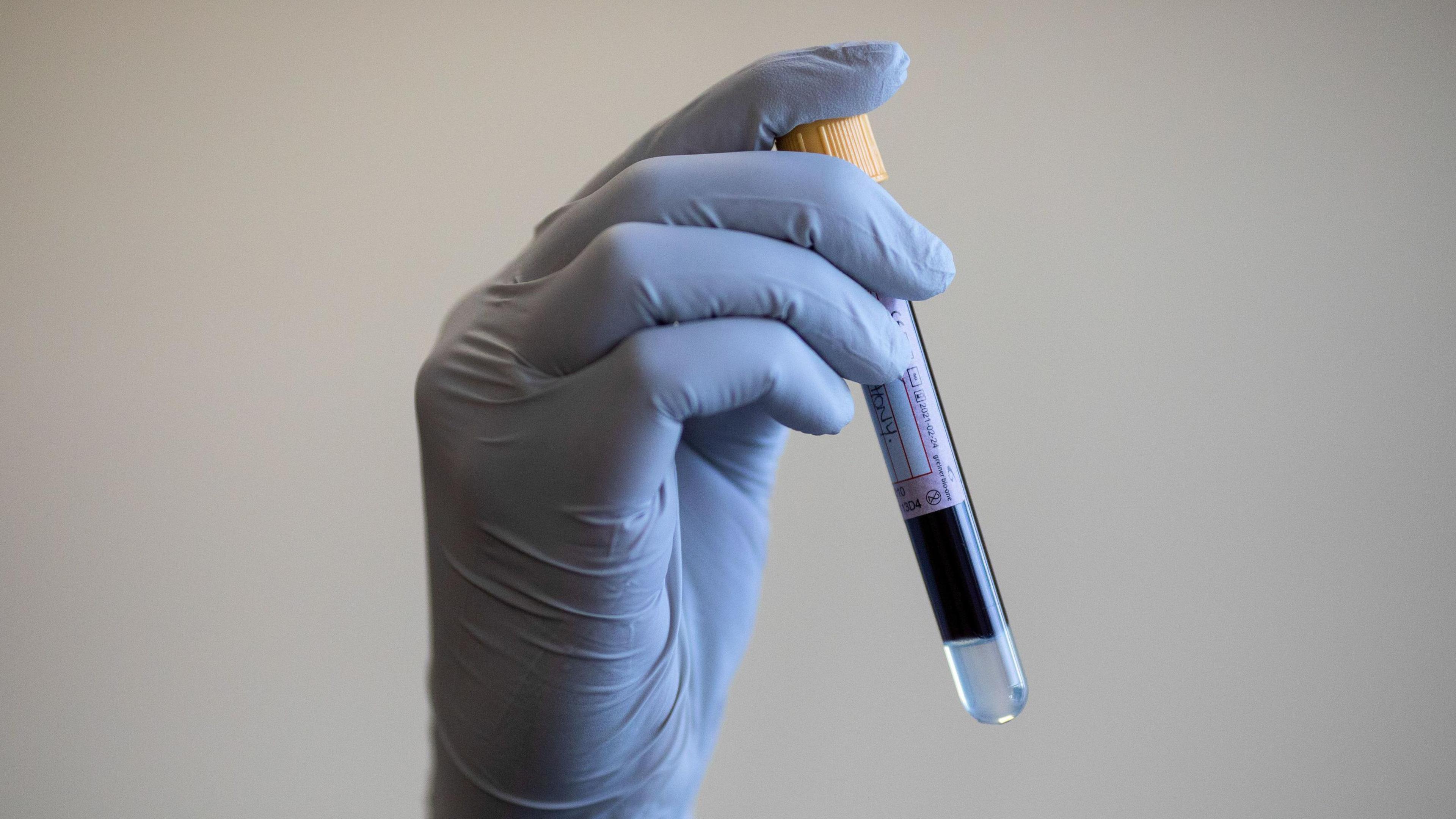Possible over-testing for prostate cancer - study

Oxford researchers find blood tests can lead to men being over-tested
- Published
Prostate cancer blood tests can lead to men being over-tested, while those who need help may be missed, a large study has found.
Researchers from the University of Oxford examined the records of more than 10 million men in England, finding they are being given prostate specific antigen (PSA) tests far more often than recommended.
Repeat testing is also occurring in patients without symptoms, or whose previous tests suggest low levels of risk, according to the study.
Experts also said that celebrities sharing their cancer journeys and advocating for PSA tests had lead to a rise in requests for testing.
The PSA test has proved controversial, with some saying all men should be tested at regular intervals, while others argue it is unreliable.
Evidence suggests PSA levels can rise for many reasons, including simple infections, and 75% of people with a raised PSA do not have prostate cancer.
Warning over rapid at-home prostate tests
- Published5 March
Charity wants testing of men at high risk of prostate cancer
- Published14 November 2024
In the latest study, published in the British Medical Journa, externall, 1.5 million patients had at least one PSA test between 2000 and 2018, resulting in 3.8 million PSA tests overall.
Almost half of those patients had multiple tests, with 73% never having a PSA value above the point at which they would normally be referred for testing.
Researchers also noted that patients in their 70s were far more likely to be tested than younger men, with testing rates were also higher for white men.
Overall, testing rates were two to three times higher in people without symptoms than in patients with symptoms.
The researchers said: "Although many patients were never tested, suggesting possible under-testing, others were tested only once, which may be insufficient for those at risk.
"The benefit of re-testing and ad hoc screening remains uncertain and requires further research to determine evidence-based re-testing intervals that balance the benefits of early detection with the harms of overdiagnosis."
Naser Turabi, Cancer Research UK's director of evidence, said: "While we've seen breakthroughs in treatment, more research is needed to improve how we diagnose the disease.
"As this study shows, detecting aggressive forms of prostate cancer is complex, and the current PSA test isn't reliable enough."
Get in touch
Do you have a story BBC Oxfordshire should cover?
You can follow BBC Oxfordshire on Facebook, external, X, external, or Instagram, external.